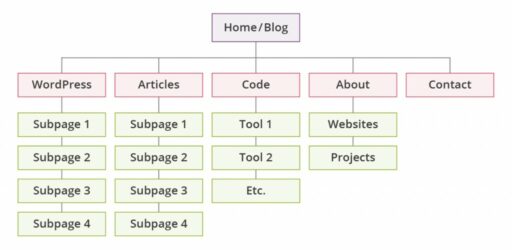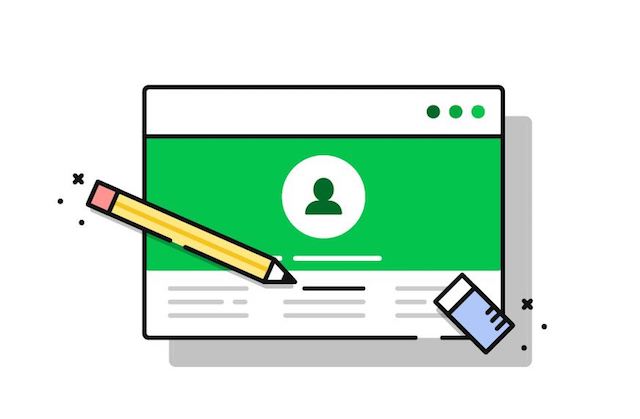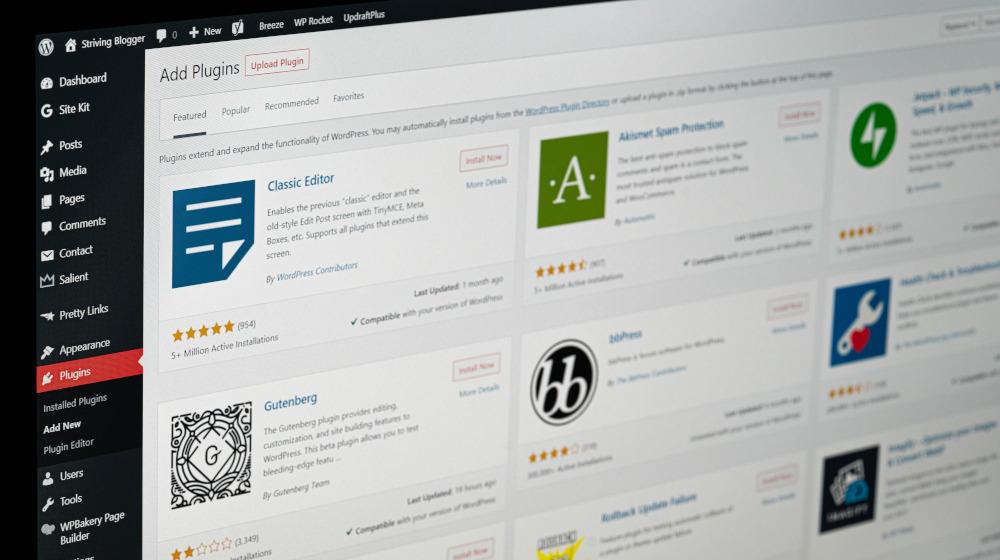When companies plan their website, they focus on choosing a perfect domain name, a suitable hosting plan, an attractive web design, and compelling content. Then after the launch, they start working on Search Engine Optimization for their website. Search Engine Optimization (SEO), is the practice of increasing the quantity and quality of traffic to your website through organic search engine results. The question is: Should companies start on SEO for websites before or after the launch?
Great, so can I begin planning the SEO for websites after their launch?
There are some elements that you can certainly work on after the launch of your website. Some of them are related to content and others are related to technical configuration. "Backlinking" for example, is a post-launch task because you need the website’s pages to be created first.
The short answer: No! Why? Read on to know!
When is the right time for SEO for websites?
Let’s assume that you have a broken water pipe and it's leaking. Then you fixed it by using some duct tape and finished up by laying some cement around, do you think you did a good job? But did you think through what would happen if that duct tape was broken as water gushes through the pipe? You’ll only have to remove the wall and rebuild it again!
SEO works quite the same way. If you didn’t implement it correctly and thoroughly in the very beginning, you’ll have a hard time optimizing your website as it grows in the future.
Here are a few reasons why you should start SEO for websites before launching them:
- To ensure you don’t lose opportunities for organic traffic: the sooner your website is optimized, the less time you’ll need to grow traffic.
- Avoid the hassle of submitting your website to Google for inspection after each SEO change you make. Set it up in advance in an automated way.
- Avoid the waste of time, effort, and even cost involved in fixing the SEO for websites as an afterthought.
How can I perform SEO for websites before launch?
Now that we have gone through the importance of proactive early SEO, let’s move on to another question: how? How can I start working on SEO for websites before their launch?
You’ll need to keep in mind that the SEO process should start during the website planning and way before thinking about the content and design of the website. We will go through three important SEO aspects that should be covered before any website’s launch:
- Website Structure
- User Experience (UX)
- Keyword Research
- Optimizing the Content
- Website Speed
- Mobile Optimization and Responsive Design
(1) Website structure
Google checks your website’s structure and how deep your pages are, starting from the home page onward. When you’re planning your website and drawing the tree diagram for all your pages, make sure you prioritize the most important pages to be on the second or third level of the website.
For example, You have a page called important.html.
The URL structure would be: www.example.com/important.html or www.example.com/Level1/important.html

The importance of website structure for SEO for a website
If you prioritize the most important pages - the ones that you want users to read - and put them up front, you will allow users to navigate easily through your website. This will lead to an increase in the average time spent on your website and could lead to a desired decrease in the bounce rate. Also, when you put those important pages closer to the home page, it will make it easier for Google crawlers to reach those pages and index them, which will improve your site’s SEO performance.
(2) The role of user experience (UX) in SEO
Did you know that a great user experience (UX) can make your website a magnet for searchers? That's right! Google and Bing's algorithms are smart enough to recognize when web pages offer an exceptional UX. The importance of UX for SEO for a website cannot be overstated. It plays a crucial role in retaining visitors, reducing bounce rates, and ultimately, improving your search engine rankings.

For example, imagine you own an eCommerce store selling handmade soap. A website with smooth functionality, easy navigation, and visually appealing design will keep customers engaged and boost your site's performance in search engine results pages (SERP).
So, let's dive into some usability tips for a fantastic UX:
- Streamline navigation with a clean and organized menu structure
- Use a consistent layout and design throughout your web pages
- Optimize your site for speed, ensuring fast load times
- Make your website accessible for users with disabilities
With a focus on usability and UX, you'll create a website that delights users and search engines alike.
(3) Keyword research

If you’re a beginner, at the intermediate level, or an advanced SEO guru, you’ll know that keyword research is necessary and fundamental to good SEO. Keyword research needs to be done before you start creating any content. The main purpose of this research is to identify which topics users are interested in. By taking this into consideration you can dig deeper into these topics to identify how users are searching for them, that is using which ‘keywords’.
Keyword Research can be done using different tools, such as Google’s Keyword Planner, SEMRush, Ahrefs, or keywordtool.io.
Please note that some of these tools are paid. If you want to use a free tool, I recommend using Keyword Planner from Google. The only downside with it is that it will show you an average search volume, not the exact numbers unless you’re a regular spender on Google Adwords.
The importance of keyword research for SEO for a website
Without the right keywords, you will not be able to write good quality content that will attract and grasp a user’s attention to keep them on your website for a longer time to explore your website’s content. The keywords that are identified are used to create other elements that will help SEO for websites.
These elements are:
- URL & Category/Page name
- Page title
- Page description
- Website Content
- Image ALT text
So, make sure you start with “Seed Keyword” and then generate relevant keywords related to it.
(4) Optimizing content for SEO
High-quality content is the bread and butter of any successful digital marketing strategy. When you optimize content for SEO, you're ensuring that searchers can find your web pages, engage with them, and find the answers they're looking for.

The importance of content optimization for SEO
- Incorporating relevant keywords naturally within headings, title tags, and meta descriptions
- Creating valuable and informative content that addresses search intent
- Using internal links and anchor text to guide visitors through your site
- Including external links to authoritative sources
Remember, your goal is to provide high-quality content that resonates with your audience and helps you rank higher on Google and Bing.
To help you achieve this, we've prepared a beginner's guide to content optimization:
- Research and target relevant search terms and search queries
- Create well-structured content with headings (H1, H2, H3) for easy readability
- Use lists and bullet points to break down complex topics
- Add multimedia elements, like images and videos, to enhance engagement
- Update and refresh old content regularly to maintain relevancy
By following these SEO tips, you'll ensure your content is primed for success in the digital marketing world.
(5) Website speed
Website speed is critical and considered one of the most important factors for SEO. If you did a speed test for your website using GTmetrix or Google PageSpeed Insights, you’ll gain insights on elements that need to be optimized to increase the website’s loading speed.

I’ll take you through two of the main issues:
- Server Performance: Make sure that your website is hosted with a powerful and reliable service that will respond instantly to all user’s requests. If your website gets high traffic and requires better-performing servers you can resort to VPS Hosting or a Dedicated Server.
- Coding structure: Your web developer can help you with the coding structure and programming of your website. They can make the website’s development and code more structured.
A simple example: instead of having code that sets the font color, size and type placed on every page, it can be collated into one single file to apply this font style across all pages. This is a kind of code compression.
Bonus tip: Ask the developer to implement AMP (Accelerated Mobile Page) to have fast-loading pages designed for mobile users only.
The importance of website speed for SEO for a website
In July 2018, Google officially announced that website speed will be considered as a ranking factor. It’s a great opportunity that you can easily take advantage of, especially if you did not launch your website yet.
These are the 3 basic SEO elements that you should take into consideration before launching the website. Please note that SEO for websites is divided into 4 phases:
- Planning (What this article is about)
- Implementation
- Pre-launch
- Post launch
Each phase must include one or more elements of SEO to be implemented – either it’s technical, content, or backlinks.
(6) Mobile optimization and responsive design
With mobile devices dominating internet usage, it's essential to have a mobile version of your website that caters to this growing demographic. Mobile optimization and responsive design are critical for SEO, as search engines like Google prioritize websites that perform well on mobile devices.

The importance of mobile optimization for SEO
- Ensuring your site loads quickly on mobile devices
- Providing a seamless user experience on all device types
- Adhering to Google's mobile-first indexing policy
Responsive design can be achieved with GoDaddy's Website Builder, which offers a variety of mobile-friendly templates for your site.
Now, let's explore some technical SEO aspects related to mobile optimization:
- Use Google's Mobile-Friendly Test tool to evaluate your site's performance
- Implement Accelerated Mobile Pages (AMP) for faster load times
- Use responsive images and prioritize above-the-fold content
By optimizing your website for mobile devices, you'll not only improve your SEO efforts but also create a satisfying experience for users on the go.
On-page SEO fundamentals for new websites
As a beginner, it's essential to familiarize yourself with the basics of on-page SEO. Here are some fundamental tips:
- Use descriptive and keyword-rich title tags
- Write compelling meta descriptions
- Structure your content with headers (H1, H2, H3, H4)
- Include relevant keywords within the body text
- Optimize images with descriptive file names and alt tags

By implementing these on-page SEO techniques, you'll set your website up for success from the get-go.
Post-launch SEO activities
Once your website is live, your SEO journey has just begun. To maintain and improve your rankings, you'll need to engage in ongoing post-launch SEO activities.
(1) Link-building and backlinks strategies
Link building is a vital off-page SEO strategy that involves acquiring external links from other websites. High-quality backlinks signal to search engines that your content is valuable and authoritative, which can boost your PageRank and improve your position on the SERP.
Here are some effective link-building tactics:
- Guest posting on reputable websites
- Creating shareable infographics
- Participating in online communities and forums
- Collaborating with influencers in your industry
- Offering testimonials for products or services
Remember, quality matters more than quantity when it comes to link building.
Monitoring and analyzing website performance
Regular monitoring and analysis of your website's performance are crucial for refining your SEO strategy. By utilizing tools like Google Analytics and Google Search Console, you'll gain insights into key metrics such as website traffic, search queries, and user behavior.

Here's a quick overview of some metrics to track:
- Organic search traffic
- Bounce rate
- Time on site
- Conversion rate
- Click-through rate (CTR) from the SERP
Additionally, SEO tools like Moz and SEMrush offer valuable resources for tracking your rankings and identifying opportunities for improvement.
In conclusion, SEO is an ongoing process that requires consistent effort and attention.
By following these guidelines and utilizing the GoDaddy digital marketing suite you'll be well on your way to achieving high-quality, long-lasting results.
Don't forget to keep an eye on your competition and stay informed about the latest SEO trends and best practices. Happy optimizing!
To summarize the most important issues with proactive SEO for websites:
Mastering SEO is essential for achieving first page rankings and driving more organic traffic to your landing pages. This comprehensive guide covers crucial aspects of SEO, including keyword research, on-page optimization, high-quality content creation, local SEO, and off-page strategies. By focusing on these key elements and consistently producing valuable pieces of content, you'll lay the foundation for a successful SEO strategy, ultimately boosting your website's visibility and performance in search engine results.
Frequently Asked Questions (FAQs):
A few answers to your frequently asked questions:
(1) How can I do SEO for my website?
Doing SEO for your website involves optimizing various on-page and off-page elements to improve visibility and ranking on search engines. Here are some key steps to follow:
- Perform keyword research: Identify relevant keywords and phrases related to your niche or industry. Use tools like Google Keyword Planner or Moz to find potential search terms.
- Optimize on-page elements: Include keywords in your title tags, meta tags, headings, and body content. Ensure your website has a clear and organized sitemap for easy crawling by search engines.
- Create high-quality content: Develop new content that provides value to your audience, addresses search intent, and encourages social media sharing. Update and refresh older content to maintain relevancy.
- Optimize for local SEO: Claim and optimize your Google My Business listing, and include local keywords in your content to target your local audience.
- Build quality backlinks: Engage in guest posting, social media promotion, and other link-building strategies to improve your website's authority.
- Track and analyze performance: Utilize webmaster tools like Google Search Console and Google Analytics to monitor your website's performance, identify areas for improvement, and adjust your SEO strategy accordingly.
Remember that SEO is an ongoing process that requires continuous effort and adaptation to stay competitive and achieve long-term success.
How much does SEO cost?
The cost of SEO can vary significantly depending on the size of your website, your industry, and the level of competition in your niche. There are several pricing models to consider:
- DIY SEO: If you have the know-how and time to invest in learning SEO best practices, you can manage your SEO efforts in-house. This approach can save money, but may require a significant time commitment, especially for beginners.
- SEO tools and software: There are various SEO tools available, such as Moz, SEMrush, and Ahrefs, which offer monthly subscription plans ranging from $99 to $399 per month, depending on the features and level of access you require.
- Freelance SEO consultants: Hiring a freelance SEO expert can cost anywhere from $50 to $200 per hour, depending on their experience and expertise.
- SEO agencies: Professional SEO agencies offer comprehensive services tailored to your specific needs. Monthly retainers can range from $1,000 to over $10,000, depending on the size of your business and the scope of the project.
- PPC (Pay-Per-Click) campaigns: Running PPC ads on platforms like Google Ads can help boost your website's visibility while you work on organic SEO. Costs will depend on your ad budget and the competitiveness of your targeted keywords.
It's essential to consider your budget and business goals when determining the most suitable SEO approach for your website.
What is basic SEO for a website?
Basic SEO refers to the foundational elements of search engine optimization, which are crucial for improving your website's visibility and ranking on search engines like Google and Bing. Here's a quick overview of some fundamental aspects of basic SEO:
- Keyword research: Identify relevant search terms that your target audience uses to find products or services similar to yours.
- On-page optimization: Incorporate keywords into title tags, meta descriptions, headings, and body content, while maintaining readability and user experience.
- Content creation: Develop high-quality, informative, and engaging content that addresses search intent and encourages social media sharing.
- Technical SEO: Ensure your website has a clean URL structure, fast load times, and is mobile-friendly for optimal user experience across devices.
- Local SEO: Optimize your website for local searches by claiming your Google My Business listing and including location-specific keywords in your content.
- Off-page optimization: Build high-quality backlinks through guest posting, social media promotion, and other link-building strategies to improve your website's authority.
- Performance tracking: Use webmaster tools like Google Search Console and Google Analytics to monitor your website's performance and make data-driven adjustments to your SEO strategy.
By addressing these basic SEO elements, you'll lay the foundation for a successful long-term search engine optimization strategy.










